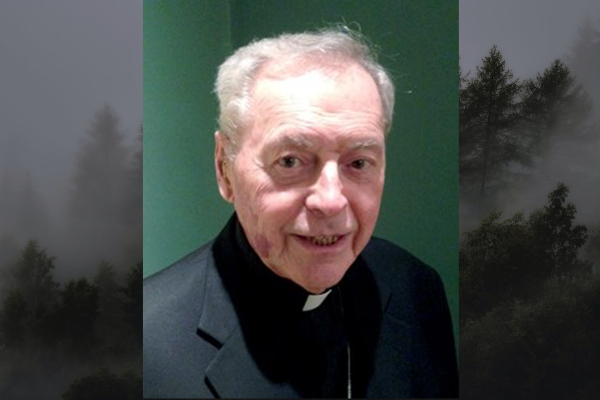Eucharist, Covenant, Unity: Rule of Life 38
original text in English
This brief article aims to understand the mission of unity and ecumenism in number 38 of the Rule of Life. We recall that the Eucharist is a covenant and gift to develop the unity that begins with the sacrament of baptism, a newer concept after the Second Vatican Council and for the Roman Catholic Church in general. Given in Rome at Saint Peter’s on November 21, 1964, the bishops of the Second Vatican Council issued a Decree on Ecumenism, Unitatis redintegratio, calling for, as written in paragraph 1:
The restoration of unity among all Christians is one of the principal concerns of the Second Vatican Council. Christ the Lord founded one Church and one Church only. However, many Christian communions present themselves to men as the true inheritors of Jesus Christ; all indeed profess to be followers of the Lord but differ in mind and go their different ways, as if Christ Himself were divided. Such division openly contradicts the will of Christ, scandalizes the world, and damages the holy cause of preaching the Gospel to every creature.
The decree states that celebrating the Eucharist is a covenant between God and the human race and remains incomplete if the baptized are divided by hate or separated from one another. Our religious Congregation was stimulated, wishing to make ecumenism (Christian Unity) a key point for us to work with the Church to restore the Body of Christ as one Christian family. This is one of the gifts of our charism as ministers of the Eucharist and leaders of Eucharistic theology and service.
The Eucharist as Covenant
He said to them, “This is my blood of the covenant which will be shed for many (Mark 14:24).” The actions and words of Jesus express within the framework of the Passover meal and the transition to a new covenant, the sacrifice of himself through the offering of his Body and Blood in anticipation of the passion and death. His blood of the covenantal both attitudes to the ancient rite of Exodus 24: 4-8 and indicate the one community that the sacrifice of Jesus will bring into being (Matthew 26:26-28, 1 Corinthians 11:23-25).
Antoine Ndong SSS, in The Eucharist Memorial of the Lord’s Easter, in the Eucharist Catechism article 1 of the Congregation of the Blessed Sacrament’s website, developed the importance of the study of the covenant in the time of Moses and the Last Supper of Jesus Christ.[1] Indeed our celebrating and receiving the Eucharist enter the covenant with Jesus Christ. Saint Peter Julian Eymard, Apostle of the Eucharist, wrote and spoke of the gift of ourselves as central to the Eucharistic spirituality. Giving ourselves to others, especially other non-Catholic Christians, is a way for us to build God’s covenant with God’s people and work toward restoring unity in the Body of Christ and working on Christ’s hope for unity.
The Eucharist and Ecumenism
The second session of the 1971 Special General Chapter drafted the first text of the Rule of Life with a section that began a reflection on our mission of unity (i.e., ecumenism). Superior General Anthony McSweeney SSS and the General Chapter of 1981 prepared this in the Rule of Life. The Vatican Congregation celebrated the critical paragraph on ecumenism for ecumenism and religious who approved this paragraph 38, and in 1984 became a hallmark of new energy toward ecumenism for us. The Eucharist is the nourishment and development of the Body of Christ, which calls us to grow together in the vine of Christ. Though many branches, like the Church itself – many Christians, but separated branches, all members are the reality of the Body of Christ – a crucial pronouncement in Unitatis redintegratio is something to inspire our religious to work with other Christian colleagues in their locations across the globe.
Ecumenism and the Mission of the Congregation
The renewal of the Congregation of the Blessed Sacrament included Rule 38 and the second paragraph that the celebration of the Eucharist leads us to promote unity in all our activities: within our Christian communities, among all confessions that share the same baptism and among all those who are working to unity in the world. Vatican II promotes this unity in Unitatis redintegratio, and our Rule of Life extends this mission to us as part of our Eucharistic spirituality. We are in a new world, a new history, and a new theology developed since the Council of Trent, especially in Vatican Council II.
Conclusion
This brief article touches on some valuable points of Rule of Life 38: our mission of the Congregation of the Blessed Sacrament, the Associates of the Blessed Sacrament, and those who want to follow the spirituality of Saint Peter Julian Eymard and his Congregation are called to be a witness of unity, work on the goal of building Christ’s body. Many years have passed since the renewal of ecumenism began; it continues as we prepare for the 2023 General Chapter and the 40th anniversary of the Rule of Life. Jesus prayed that we all be one; May Christ’s prayer be answered through our living and working with the Rule of Life 38.
3 July 2023
Father Ernest Falardeau SSS
Highland Heights (Bethany Center), Ohio, U.S.A.
[1] Also published in Ensemble/Together 90.

